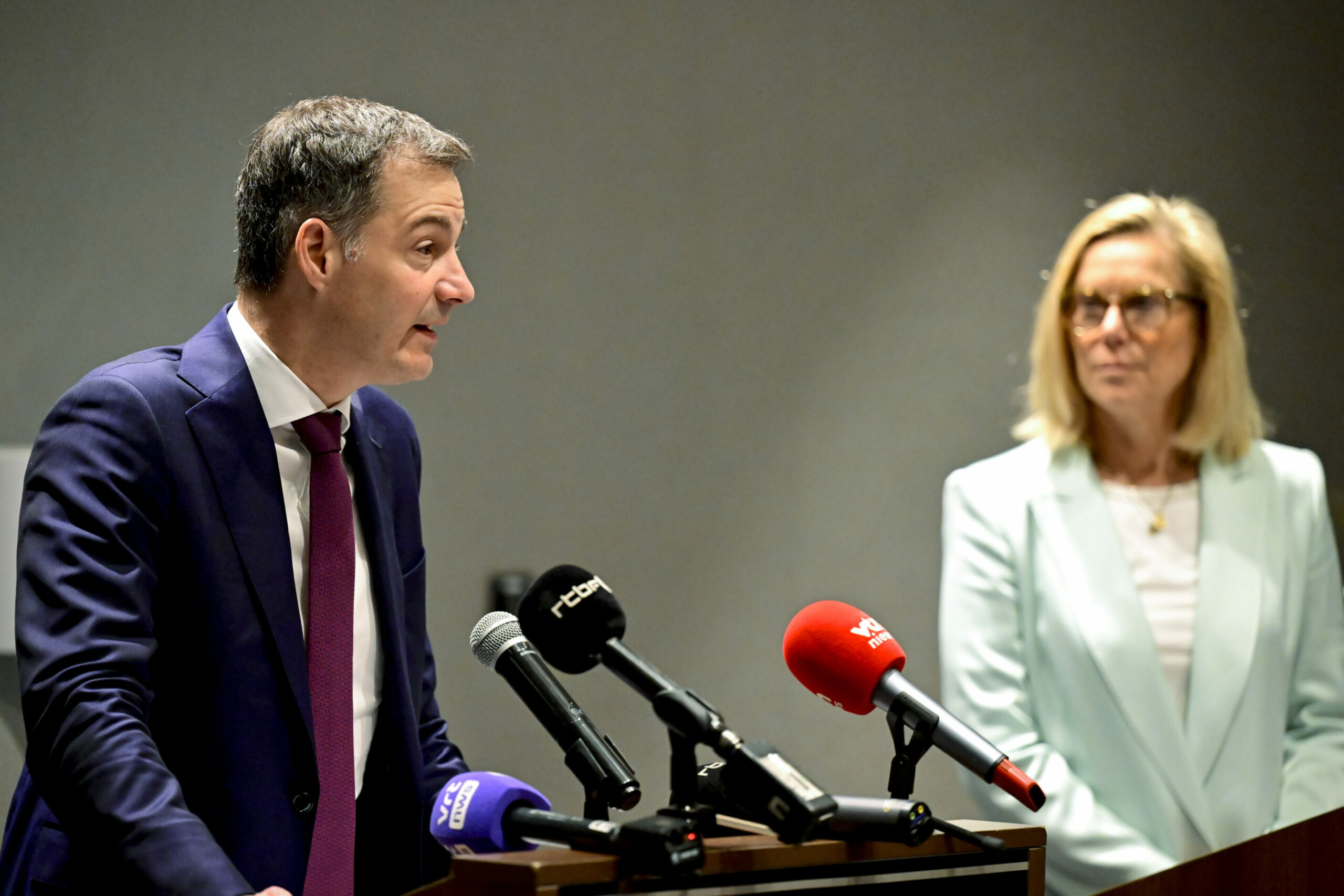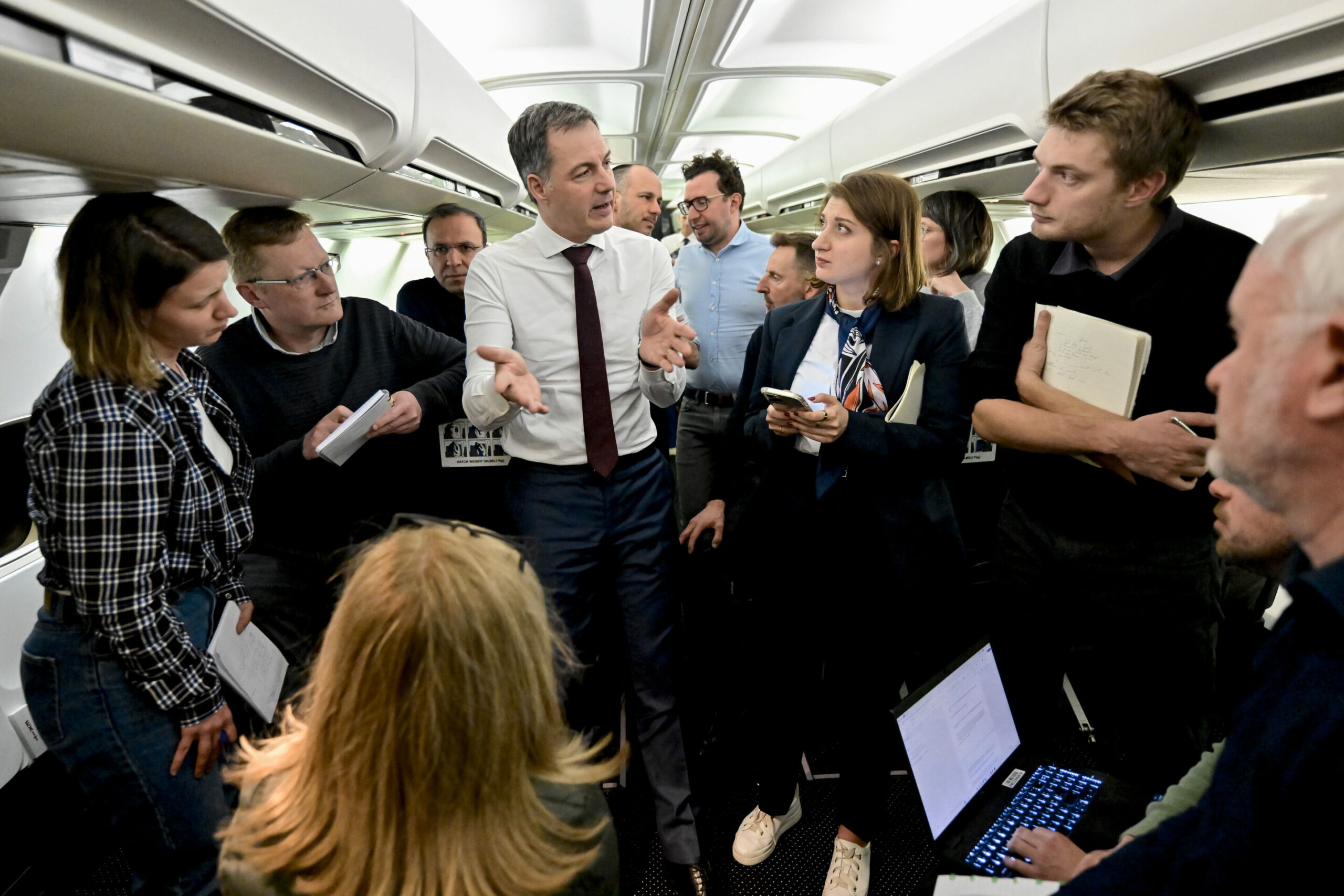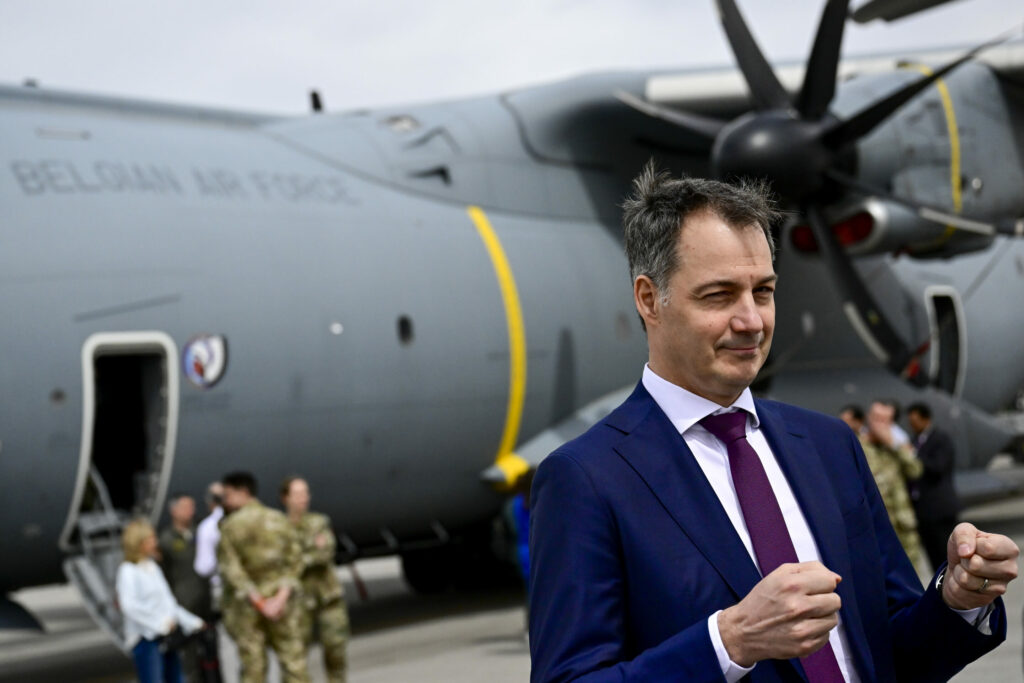Belgian Prime Minister Alexander De Croo has condemned the "lack of humanity" in the delivery of humanitarian aid to Gaza, as he begins his latest trip to the Middle East.
"Israel must demonstrate as a matter of urgency that it is not using famine as a weapon of war by opening up humanitarian access routes to the population of Gaza," urged the Belgian Prime Minister in Amman, Jordan.
Prime Minister Alexander De Croo is visiting Jordan, Qatar, and Egypt this weekend to discuss the ongoing conflict between Israel and Hamas and the catastrophic-level food crisis with increasing risk of famine in the Gaza Strip, Belga News Agency reports.
"There is no shortage of humanitarian aid, just a lack of humanity in the way the aid is organised," De Croo told the press in the Jordanian capital. He spoke alongside Sigrid Kaag, the UN humanitarian aid and reconstruction coordinator for Gaza and former Dutch minister.
The two leaders insisted that "there is no valid alternative" to delivering aid to Gaza by land. Airdrops, as Belgium and other countries have been doing for the last few weeks in Gaza, nor the sea corridor that has opened up in recent hours, are effective in reaching the people who need it most.
De Croo also stressed that these routes are also very expensive. As a result, these solutions remain essentially "symbolic" in the face of a "catastrophic" humanitarian situation.
Belgium is also a partner with Jordan and other countries in providing humanitarian aid to Gaza. The Belgian Defence's A400M aircraft, making the aid drops, takes off from Jordan. The Prime Minister will visit these military personnel.

Prime Minister Alexander De Croo and Sigrid Kaag, Humanitarian and Reconstruction Coordinator for Gaza pictured during a mission of the Belgian Prime Minister, Saturday 16 March 2024 in Amman, Jordan. Credit: Belga / Dirk Waem
In Northern Gaza, the amount of children under-2 are suffering from severe malnutrition in the last month has doubled, according to UNICEF. Now 31% of children in this age group are affected, with 23 having died of hunger or thirst in recent weeks. Two weeks ago, the Belgian Government approved a payment of €13.5 million to UNRWA.
Meanwhile, talks have resumed with three mediating countries (Qatar, Egypt and the United States) in an attempt to reach a ceasefire between Israel and Hamas.
The situation in Gaza will further be discussed on Sunday in Cairo, where De Croo is due to meet President Abdel Fattah al-Sissi. Egypt controls Gaza's only land crossing which is not controlled by Israel, near Rafah, to which approximately 1.5 million Gazans have sought refuge under extreme conditions. Despite international criticism, this is where the Israeli military threatens imminent intrusion.
Egypt migration agreement
A significant pre-agreement on migration between the EU and Egypt will also be a central part of this mission. Egypt is seen by the European Union as a country of transit, origin, and destination for refugees fleeing instability in the Middle East, Sudan, and Libya.

Belgian Prime Minister Alexander De Croo pictured on board of a plane, giving a briefing to the press ahead of a 2 days mission to Jordan, Qatar and Egypt, on Friday 15 March 2024. Credit: Belga / Dirk Waem
As part of the Belgian EU Presidency, De Croo will join European Commission President Ursula von der Leyen in signing a 'global partnership agreement' which aims to curb irregular migration through increased border control and return policy cooperation.
The Prime Ministers of Italy and Greece – frontline countries for migrant crossings – will also attend the ceremony. This type of agreement, seen as another attempt to stem migration flows, is controversial due to Egypt's human rights record, particularly relevant to the country's authoritative regime which arose from a 2013 military coup.
Following agreements with Tunisia and Mauritania, the third 'global agreement' would also cover energy (hydrogen), education, and skills, in return for European funding included in a multi-billion package in grants and loans by 2027.
"As EU leaders seek to strengthen their ties with Egypt, they must not risk being complicit in the country’s ongoing serious human rights violations," said Amnesty International’s Head of the European Institutions Office, Eve Geddie.

